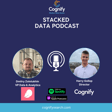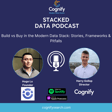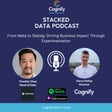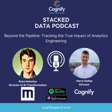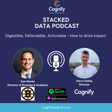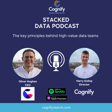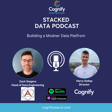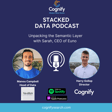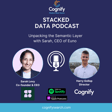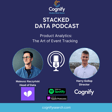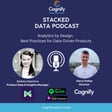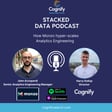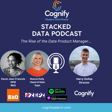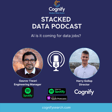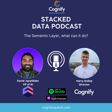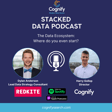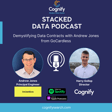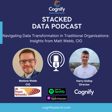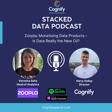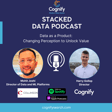
035 - How to Be a Strategic Driver of the Business - Senior Director of Wise
Welcome back to the Stacked Data Podcast — where we explore what it really takes to build impactful data teams in the modern world.
This week’s episode is all about stepping out of the ticket queue and into the strategic driver seat.
I sat down with Adam Cassar, Director of Analytics at Wise, to explore how analytics teams can break free from the reactive reporting cycle and become genuine business partners. This conversation is packed with real-life examples, practical strategies, and hard-earned lessons from Adam’s experience leading high-performing teams.
We cover:
✅Why many analytics teams end up in a service-provider role — and how to shift that perception
✅The biggest barriers to becoming more strategic (and how to overcome them)
✅How to proactively influence business decisions (not just report on them)
✅What skills, mindsets, and relationships actually matter if you want your team to have impact
Whether you're an IC or leading a data team, this episode is for anyone who wants to stop being a dashboard factory — and start driving real change in the business.
🔁Share it with someone who’s ready to level up their data career
#StackedDataPodcast #AnalyticsEngineering #ModernDataTeam #DataLeadership #Wise #DataStrategy
